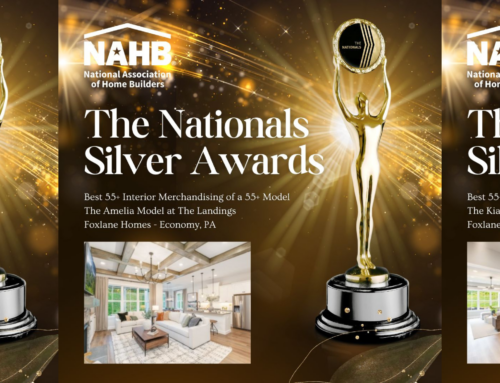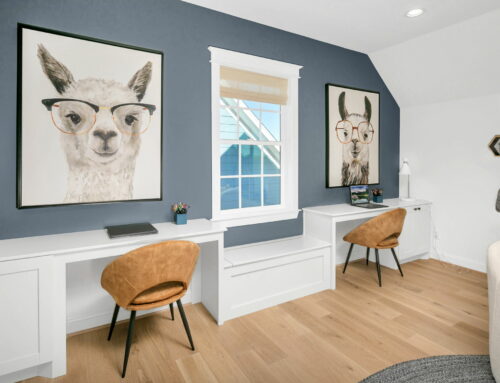Lessons from Emerging Legends: Mollie Elkman
In March 1987 Congress passed a law designating March as Women’s History Month. The intention was to “celebrate the contributions women have made in the United States and recognize the specific achievements women have made over the course of American history in a variety of fields.” It’s only fitting then, that our lead story for the March newsletter is an interview with a woman who has made tremendous contributions in this industry and this country: Mollie Elkman.
Mollie is the owner and president of Group Two, a full-service advertising and marketing firm for home builders. While Mollie has been in the building industry for over 16 years, she definitely has a long and impressive future ahead of her. So instead of this interview being called, Lessons from Legends, we are dubbing it “Lessons from Emerging Legends.” Because I guarantee when (in the distant future) Mollie nears the end of her career she will most definitely be a legend.

Setting the Foundation
Mollie was born into the home building industry. Her father, Richard Elkman, is the larger-than-life founder and former president of Group Two. Some of Mollie’s earliest memories are traveling to the International Builders’ Show and visiting model homes with her dad and even being featured in his print ads for home builders back in the 1980s.
Despite growing up in the industry, it wasn’t a foregone conclusion that Group Two would be her future. Far from it. Mollie entered college with dreams of becoming a writer. As fate would have it, she got an internship at an agency that had both PR and advertising departments. She quickly found herself gravitating to the advertising side of the house overflowing with ideas and passion for that aspect of the business.
In 2006 Mollie was pursuing a career in advertising at a large agency in California when she received a call from her father. He was preparing to start winding down the business unless she had any interest in keeping it alive. Basically, it was now or never. Mollie decided to take the leap.
It would be another six years before Mollie signed the papers officially becoming the owner and president of Group Two.
Framing the Future
LD: How has your journey been from “learning the business” to being in charge? Was it a smooth transition considering your background?
ME: The transition was not an easy one. I was coming from a really competitive consumer branding agency with big budgets and unlimited opportunities for creativity into a struggling industry. When I came over, I already knew I loved advertising, but it took a few years for me to fall in love with the building industry.
LD: That makes sense. When you were a kid, you were experiencing the industry from a whole different perspective. Speaking of perspectives and impressions, did you find yourself discriminated against? For being Richard’s daughter, for being a woman, and a young one at that?
ME: I don’t know that I would have used the word discriminated at the time, but looking back there are many examples of situations that I just thought were part of being a woman in a male-dominated field… there was one time my dad and I were in a meeting with an older builder, a man that had done business with my father for a long time. This man never made eye contact with me. It wasn’t until about 45 minutes into the meeting, when my dad casually referred to me as the future president of the firm that the man acknowledged my presence. It’s hard to look back on that and know that he thought because I was a woman I was, of course, there in a note-taking capacity.
I remember after the 2007 International Builders Show, my dad shared that some of his colleagues were surprised that compared to him I was “so serious.” He wasn’t aware that as a young woman in the industry it was important to me to be respected for my ideas and contributions. I knew I had to earn the respect of the industry on my own merits. I am really fortunate that my dad could see my perspective and throughout the years he has been my biggest supporter. He has always encouraged me to do things my own way.
LD: That brings me to my next question, what’s changed at Group Two since you took over? How have you made it your own?
ME: [Laughs.] Pretty much everything. The culture, the vibe, the messaging, our goals, they’ve all changed. What we do for builders has totally changed as well.
My hope was to create a work environment that people enjoyed, where they wanted to come and spend time. I wanted them to know they are valued as a person and team member. For me, marketing can only be great if the people working on it care deeply and that is the main thing we look for in a team member. Everyone cares about our builders, our company, and each other.
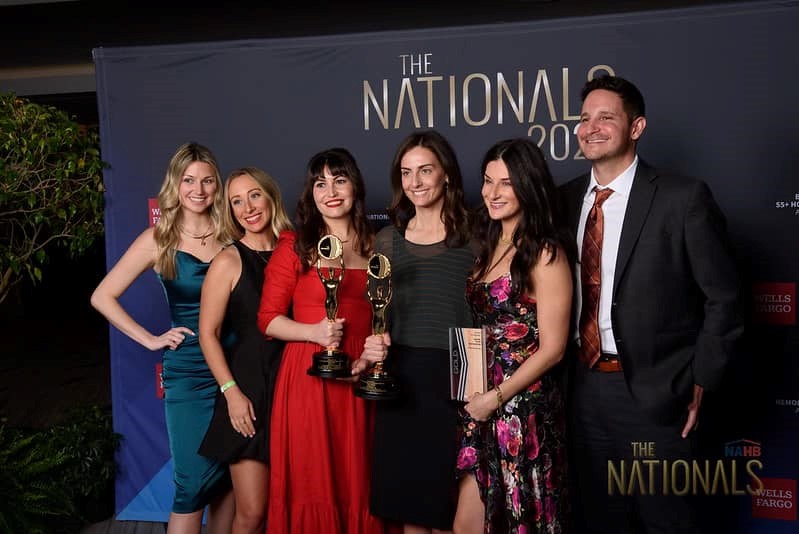
Creating the Book
LD: You’ve definitely done that. You have incredible employee loyalty, and the company’s successes speak for themselves. Speaking of successes, let’s talk about the book. How did the idea come about?
[Editor’s Note: The book, The House that She Built, written by Mollie, and illustrated by Georgia Castellano, educates young readers about the people and skills that go into building a home. It focuses on 18 different trades involved in homebuilding and showcases women in roles that have historically been male-dominated professions.]
ME: [Visibly lighting up.] Kristi Allen is a good friend of mine. She is a third-generation home builder who grew up on the job site. And we both entered the business professionally around the same time. Once Kristi realized she wanted to be a general contractor, she started her own building company. She was also a founding member of the PWB (Professional Women in Building) chapter in Utah. She is someone I really respect and admire.
Like her father before her, Kristi brought her kids to work with her. And when her daughter started asking questions about construction and how to build homes, Kristi realized how important it is for girls to see role models in the industry. She was all in when her PWB decided to build a home that would be built, marketed, and sold entirely by women and women-owned businesses. As part of the effort, she came to me as a female business owner and asked if we would be the home’s marketing firm. Of course, I said yes without hesitation. This was 2019.
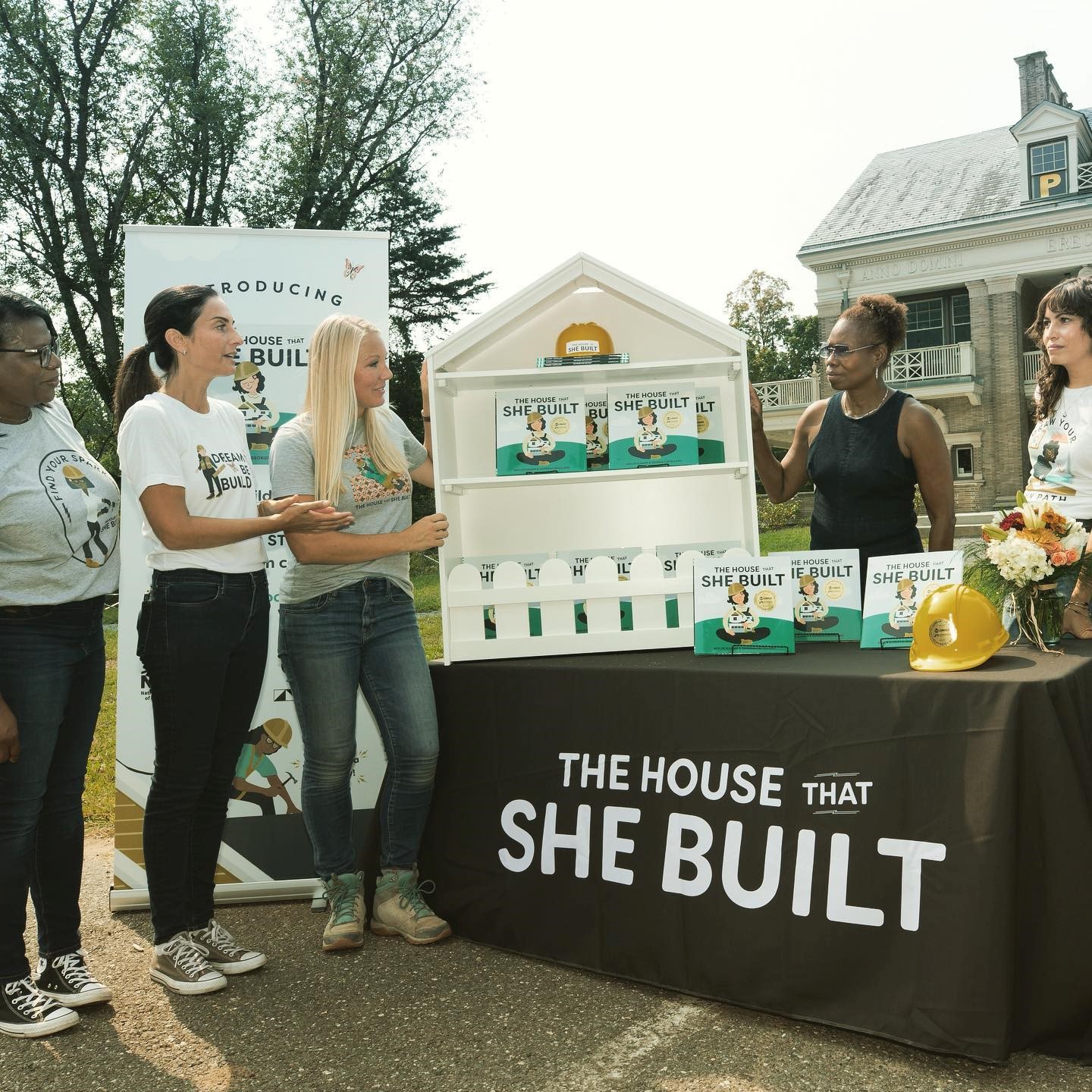
LD: Was the project always dubbed “the house that she built?”
ME: No. The team at Group Two brainstormed, and we came up with a variety of different marketing ideas. The whole concept of the name, the color scheme, and the theme of “the house that she built” was our favorite option that we presented to the group in Utah. From there, the marketing just took off.
We started telling stories about individual tradeswomen on social media. All of them had such different life experiences and skills. All of their paths into the trades were completely unique and their stories were fascinating and inspiring. We fell in love with the project, and all the women involved. Everyone did.
Then I realized, all the positive momentum was all going to end. The house was going to sell and that would be it. The idea of that just didn’t feel right.
I had written a poem based on the children’s nursery rhyme, The House that Jack Built to be read at the grand opening by the women in Utah. Do you know this story? It’s a progressive story where one idea adds to the next, each paragraph building on the previous. The poem I wrote was like that about this house and the women that worked on it. And then it hit me, this was it! I had always wanted to write a children’s book about the building industry but wasn’t sure what story I wanted to tell. Then I realized, this was the perfect story.
LD: So how did it go from an idea to an actual published book?
ME: I had already written the poem, so I really had the first manuscript before I even knew we were going to do a book. And thankfully I had Georgia on board, since she was the creative director of the project, she already knew the importance of the message and visuals. Her illustrations are just so thoughtfully detailed and perfect.
As far as actually publishing the book and getting it out into the world, I turned to NAHB. I knew I wanted the book to be published by NAHB and for the proceeds to go into supporting workforce development initiatives.
Patricia Potts is our publisher with NAHB Builder books. She is amazing. Her entire career has been about supporting and promoting women and women’s initiatives. Her passion for the book not only matched my own but exceeded it. She was the perfect partner to bring this to life.
NAHB agreed to publish 5,000 copies of the book. That was a big commitment for them as their first consumer-facing title and their first children’s book. I knew we would need more though. I agreed to pay for another 5,000 on my own as we worked on securing sponsors. 84 Lumber and Andersen Windows and Doors ended up loving the idea and supporting all the initial costs which really helped the book take off.
On the day of the book launch, all 10,000 copies were sold. That was six months ago, and we are about to do our third 10,000 run.
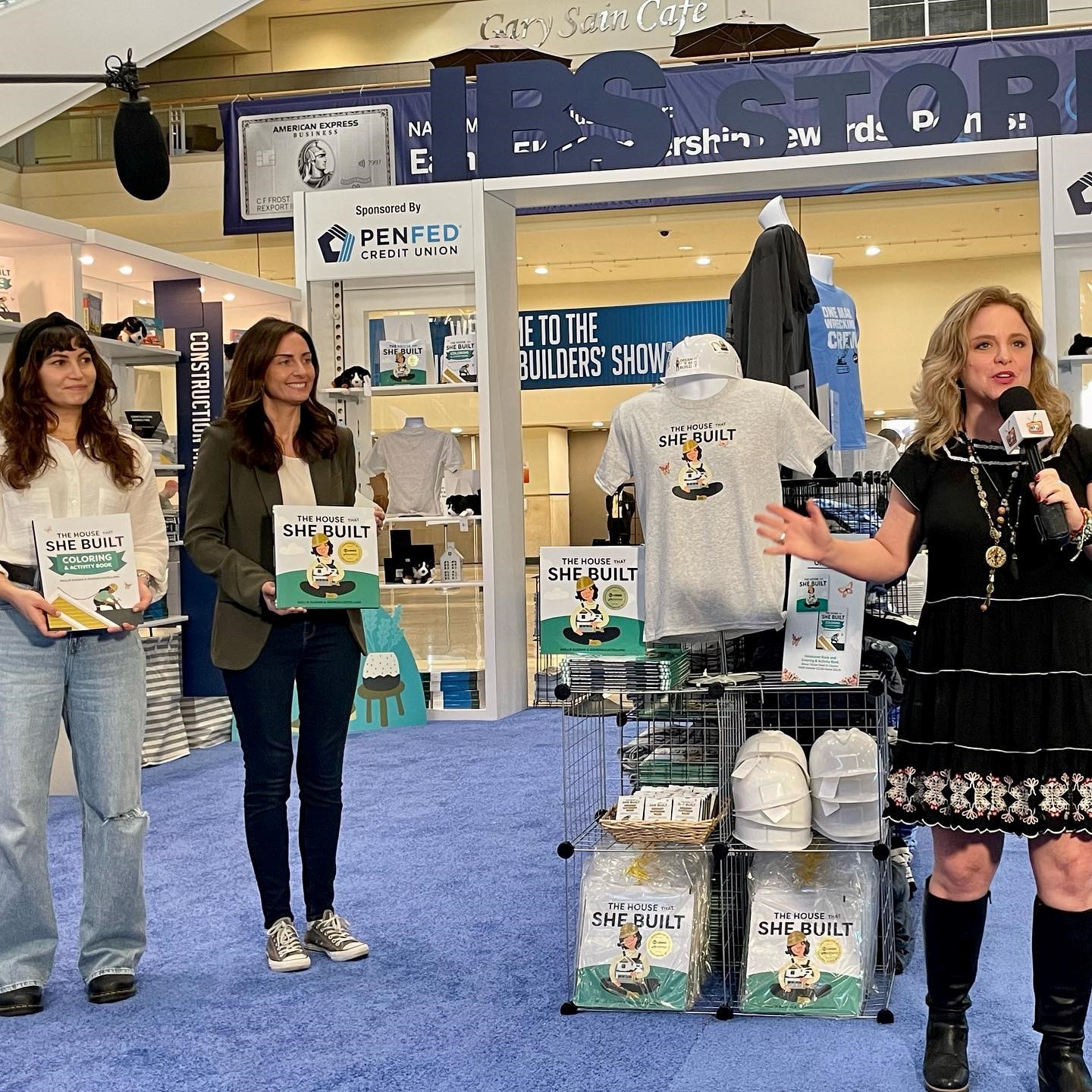
Becoming a Movement
LD: Amazing.
ME: It really has been! But what’s even more amazing is that it’s become so much more than just a book. It’s become a movement. There’s not a day that goes by that I don’t get a social media post, email, or text message about the book. Teachers are using the book in their classrooms. Parents are reading it to their kids at bedtime. Just yesterday I got a message from a woman in England. And at IBS this year I was being interviewed, and the moderator started tearing up. I am overwhelmed and honored at the reaction the book is receiving.
Oh, and I have to share this with you, on March 26, the Girl Scouts of America launched an at-home patch and charm program inspired by the book. It’s an opportunity to show women in a variety of trades. The program will include each of the 18 trades highlighted in the book. This is such a huge opportunity to expose young girls to the building industry. Weyerhaeuser has signed on as the educational sponsor for the program. It’s so exciting. I know that this is just the beginning.
LD: That’s fantastic! It really has become a movement. What’s next?
ME: There is so much opportunity out there with outreach, hands-on activities, and educational curriculum. We haven’t even scratched the surface of the impact we can have on the political arena. I feel like that’s our next frontier.
LD: It really seems like this is a movement that’s time was due. Have you experienced any pushback or roadblocks yet?
ME: Fortunately, no. So many companies want to participate and are looking for ways they can be involved. Like you all. I’m grateful for the invite to speak at your local PWB next month. And, Lita has always been supportive of me. In fact, she was one of the first people to believe in me when I originally entered the industry. She has always been so encouraging, warm, and welcoming.
LD: That’s fantastic! Speaking of when you first came into the industry, it’s been a while now. What keeps you motivated after all these years?
ME: Burnout is inevitable. When you own a company, you end up doing a lot of things that are not what got you into the business in the first place. Fortunately, I have a fantastic partner in my husband Daniel, who handles all the things for the business that are not my natural strengths. We complement each other that way.
I also think self-awareness helps eliminate burnout. I know I am social and need to be around people. And I know I am an all-or-nothing person. When I go in on something (i.e., a children’s book to promote women in the building industry) I’m going all in. I will work non-stop to promote the book and help propel the movement forward. This movement has reignited my passion and commitment to the industry. It has really been such a joy.
LD: It’s so apparent, your passion and joy for the industry. Thank you so much for taking the time to chat with me today, one last question before we go, what’s the best advice you’ve ever received?
ME: Wow. That’s a hard one. I’ve received so much good advice in my life. A lot of lessons about leadership I learned when I was a kid at camp. But, if I really think about it, it came from my dad. He’s always said, “do it your way.” And I think if you are genuine and do it your own way, without comprising your values, you will be successful.
LD: Can’t think of a better way to end this, thank you, Mollie. For all those local Denver people reading this, you’ll definitely want to make plans to see Mollie speak at our April PWB meeting, more information here.
And if you haven’t already, get yourself a copy of the book!


